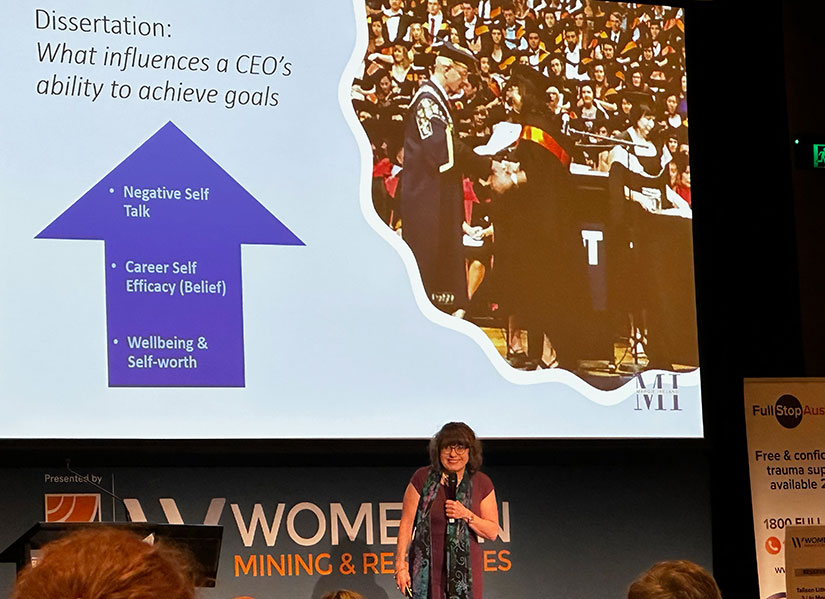
Kim Hellberg, 19 March, 2024
The phenomenon of burnout has gained significant attention in recent years, especially since COVID. But while the pandemic is now over, burnout is on the rise. QUT alumnus and registered psychologist, Margie Ireland, unpacks what is it and shares her tips for beating the burnout.
What is burnout?
Stress is a fact of leadership and professional life. While intense, long-term stress can lead to the debilitating state referred to as burnout.
In 2019, the World Health Organisation recognised burnout as an occupational phenomenon. They describe it as “a syndrome conceptualised as resulting from chronic workplace stress that has not been successfully managed, characterised by 3 dimensions”.
These 3 dimensions are:
- Exhaustion that doesn’t go away after rest or time off.
- Negativity or cynicism towards work or colleagues.
- A feeling of ineffectiveness, or incompetence.
Extensive research by Christina Maslach (Professor of Psychology, and a core researcher at the Healthy Workplaces Centre at the University of California) has linked burnout to many health problems, including hypertension, sleep disturbances, depression, and substance abuse. Burnout can also ruin work and personal relationships, negatively impact career opportunities, team and organisational performance. In my own practice working with leaders, I have noticed a huge spike in burnout in 45 to 55 year olds in particular.
Regardless of age, beating burnout often requires facing changes at your job or organisational level. However, if these are out of reach for you now, you can also take steps toward recovery and prevention on your own. Below I cover some ways you can beat burnout and strategies you can implement now.
 Margie speaking at the Women in Mining & Resources Summit, proudly showing off her QUT graduation photo
Margie speaking at the Women in Mining & Resources Summit, proudly showing off her QUT graduation photo
How to get out of burnout
My approach to moving out of burnout is looked at through two lenses. Most of my clients have found the second lens to be the most helpful to focus on first, and then move onto to lens one.
Lens 1. What don’t I have control of? This could be rapid organisational change, or inability to change jobs or leave an organisation due to financial pressures and obligations.
Lens 2. What do I have control of? For example, your diet, physical activity, and mindset. All of these are within your control.
Looking through this second lens, here are some key tips to help you beat the burnout.
1. Prioritise your physical health
A common theme in life, isn’t it? Get more exercise, eat a better diet and improve your sleep. This is critical if you or someone you know appears to be experiencing burnout, as fatigue can often lead to bad habits and a ‘quick fix’ such as bingeing on sugar, alcohol and Netflix.
Now is the time to do the exact opposite.
When I was burnt out many years ago and had to drag myself to the gym, I told myself “if I get there, and 10 minutes later I want to go home, I will”. I never did as I found that once I started moving my body, it released the ‘feel good’ hormones. Five years ago I stopped drinking alcohol and I found that had a significant positive effect on my mental and emotional health.
Regular exercise and less alcohol promotes better sleep; however, experience of consistent problems with sleep is something to discuss with your GP.
2. Reset mindset
Following on with the theme of prioritising physical self-care, the next step is to reset your mindset, which is easier than you may think.
When in burnout, your sympathetic nervous system (i.e., your flight-fight-fright response) is switched on more often and, in switching this off, your parasympathetic nervous system (responsible for ‘rest and digest’) can turn back on.
The simplest way to do this is to slow down your breathing, which may seem simple, but is highly effective. The box breathing method is the easiest – inhale for 4 seconds, hold for 4 seconds, exhale for 4 seconds, breathe normally for 4 seconds – repeated 4 times.
At the same time, notice your negative-self talk - is it serving you right now? What would a good friend say to you when you are feeling high levels of stress? Probably not what you are saying to yourself – this is the time to be your own best mate.
3. Connection
‘A problem halved is a problem solved’ - reaching out to those you trust when experiencing burnout is essential. This can be a friend, partner, colleague, therapist, GP, pastor, minister – the person you go to when you need support or a kind word.
Find qualified coaches and mentors who can help you or your team identify and activate positive relationships and learning opportunities.
The last word
Burnout, if not identified and managed well, can negatively impact your career and overall wellbeing. Many people feel a deep sense of shame for experiencing burnout. Burnout also negatively impacts team and organisational performance. By understanding burnout and implementing appropriate strategies, you can avoid and resolve it. For many people this can be a turning point that leads to a happier, healthier, high-performing employee and leader.

Margie Ireland
Margie is the author of The Happy Healthy Leader – how to achieve your potential even during a crisis. She is a registered Psychologist (MAPS), Leadership Coach (COPS), workshop facilitator and speaker. Margie is highly regarded for helping Leaders and their teams navigate stress and change with healthier coping strategies, leading to happier, healthier and high-performing teams. She is well known for her highly inspirational speaking engagements, and if often asked to comment on leadership wellbeing in the media.
QUT degree - Bachelor of Behavioural Science (Psychology) (2014)
Do you have a question for Margie? Connect with her on LinkedIn or visit her website.
